Discussion:
You must be logged in to reply to this topic.
- Information Literacy
-
January 26, 2016 at 3:44 pm #34447
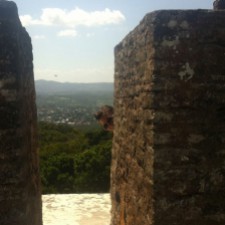
Nora AlmeidaParticipantAfter viewing the Project Information Literacy Video respond to the following prompt:
Reflecting on your evolution as an academic and scholar, how did you become information literate?
-
This topic was modified 8 years, 3 months ago by
 Nora Almeida.
Nora Almeida.
-
This topic was modified 8 years, 3 months ago by
 Nora Almeida.
Nora Almeida.
January 28, 2016 at 5:09 pm #34480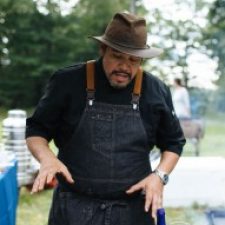
Alejandro CantagalloParticipantMy information literacy was forged in a unique time. Mobile phones did not exist until I was in junior year of high school and when I started College at SUNY Stonybrook there was only 1 lab in the whole campus that had “internet computers.” Prior to all those developments I had learned about research in high school through projects that called for searching through micro fiche and other written sources, primarily encyclopedias. For me, access to Lycos, web crawler and later Google where tremendous leaps in my ability to quickly research information. Remembering my first time doing a web search, I recall depending heavily on my previous research skills in order to formulate the correct question that would produce good results to a query.
Learning as I went and being an early adopter of technology had a lot to do with my success in developing effective research methods. My analog background in researching subject matter had everything to do with my information literacy as time went on.February 2, 2016 at 6:12 pm #34663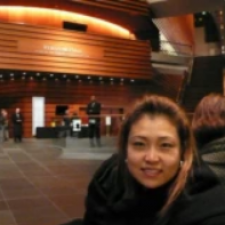
Prof. KimParticipantWe are now overwhelmed with informtion due to the development of technology. To me unformtion literacy is finding reliable and useful information and interpreting the information correctly. The Internet has a number of pros in that this medium increases an accessibility to quality information but it also requires us to develop a capabiity to filter out less relevnat indormation from search. Perhaps, using the right search strategy would be more highlighted in the near future — or even now.
February 2, 2016 at 6:43 pm #34668
Patrick CorbettParticipantHey, this is actually an area of my research that I publish on! Having said that, I’m not sure that I’m still thinking about information literacy in the same way that I was the last time I published something about it (2013 or so). I’m teaching Information Architecture (IA) now for the first time, and it’s really made me think about how we approach the idea of “information literacy” in education. So much of it seems to be to try to get students to see information differently, but we don’t do that well with breaking out of the “information consumer” model. In IA, the focus is not on consuming information better or with higher fidelity, but how we can use systems-thinking to organize and reorganize what we know and work towards a solution for what we need to know. So, from consumer to….what? Not just producer, because that’s not necessarily better. So…what?
February 2, 2016 at 10:44 pm #34678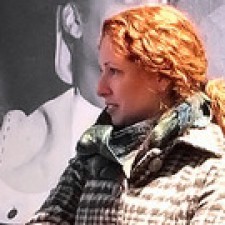
Prof. Karen GoodladParticipant@alejandro Having had the privilege to work with you in many different capacities I know that your IL skills are also grounded in your ability to ask a thoughtful question.
February 2, 2016 at 10:49 pm #34679
Prof. Karen GoodladParticipant@ellen I like that you bring up the abundance of information. I often struggle with, as you state, the need to “develop a capability to filter out less relevant information”.
February 3, 2016 at 9:07 am #34689
Prof. Karen GoodladParticipant@patrick Your post made me think of a Maya Angelou quote…
“Do the best you can until you know better. Then when you know better, do better.”February 3, 2016 at 3:26 pm #34729
Maria DiminoParticipantThis was very interesting but depending on the high school that the student comes from prior to college will make an overall difference in their college transition. My youngest son is in a specialized high school and doing many research projects that include peer reviewed journal articles and and abundance of library sources. In essence, I feel as though his transition may be smoother than other students.
February 4, 2016 at 4:47 pm #34844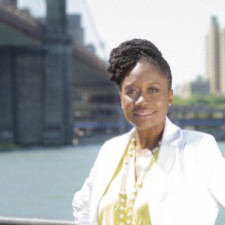
Prof. Thalia PericlesParticipantMy experience in the area of information literacy is consistently evolving. I believe it needs to be, especially with the rapid advancement of technology and the ever-expanding ways of retrieving information. The internet has allowed us so many options for finding information quickly, but as some have already mentioned the challenge comes in learning and discerning what information is relevant for what we need.
@Maria, you raised a point that came to my mind as I watched the video. My hope is the the public HS curriculum would expose students to the type of research that they will be required to engage in when they enter college. Unfortunatly however, I think for many students this is not the case.February 4, 2016 at 7:07 pm #34856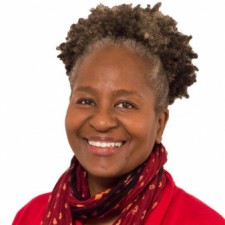
Prof. Linda BradleyParticipantMy experience in the area of information literacy is from my interactions with people as a healthcare professional. These interactions are usually face to face with individuals or groups who have health care needs and express those needs. I in return need to obtain clear and concise information from them. This is a skill modeled and taught early in Nursing. I believe that it is in our human interactions that information literacy begins. The location of those interactions, the tools we use in those interactions are in my opinion, secondary. I consider the purpose we seek and share information is to make connections with others. In our current healthcare system we now have more non-traditional care settings that demands a shift in information literacy in order to navigate the system. This is true in our education system and this is what I believe was expressed in the video. @Thalia, I too believe that I am evolving in my understanding and ideas related to information literacy. Yet, within this constant flow of information, I believe it is important not to lose personal interactions.
-
This reply was modified 8 years, 2 months ago by
 Prof. Linda Bradley.
Prof. Linda Bradley.
February 29, 2016 at 11:02 pm #35488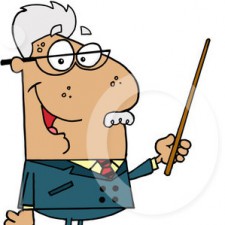
Stefan SParticipantReflecting on your evolution as an academic and scholar, how did you become information literate?
As a kid, when I’d have a question, my mother would reply – Look it up in the encyclopaedia! The problem was, we lived in South-East Europe, and the Encyclopaedia Britannica was back on the US West Coast! So, one day my parents drove up to the local children’s library, signed me up, and said: there – here’s all the knowledge you need! And, so my steps towards acquiring information literacy begun… and are still evolving… still preferring to peruse the books in a library stack, and then move on to the library computer lab section to take notes, and further explore… I have learned, though, that – as far as humanities and social sciences go – information literacy is primarily about the content of the ‘information’, not the mode of communication. It’s the second one that at times and in places is inaccessible, and more challenging, than the ideas and debates themselves.
-
This topic was modified 8 years, 3 months ago by
You must be logged in to reply to this topic.


